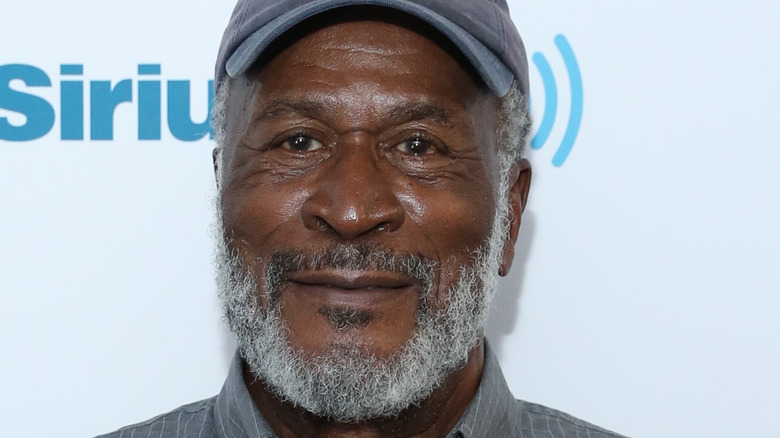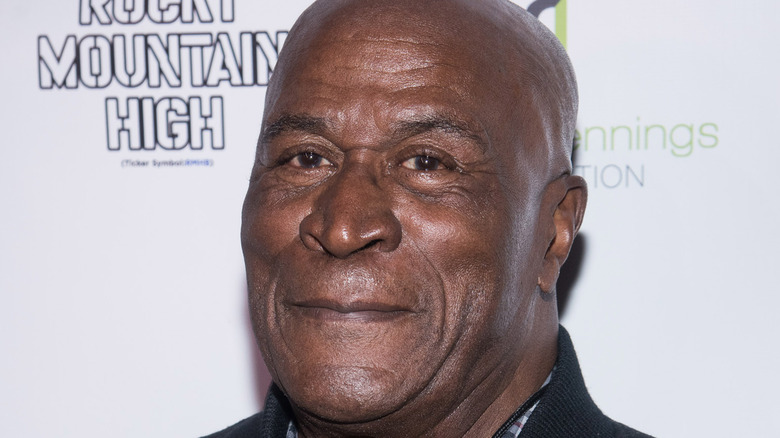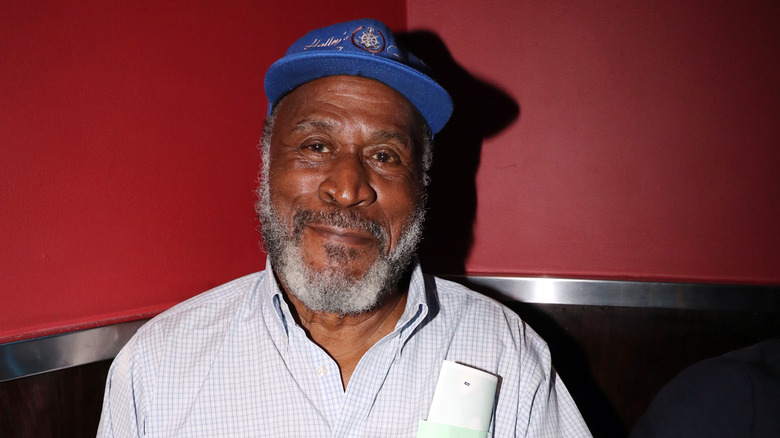The Real Reason John Amos Was Fired From Good Times
The 1970s represented a period of drastic changes in the TV landscape. After decades of inoffensive family sitcoms, some producers, such as Norman Lear, began pushing the envelope. As Salon reports, shows like "All In The Family" offered a gritty and unflinching look at issues such as racism and poverty, although through the lens of comedy, with Lear's progressivism informing much of the writing. According to Screen Rant, "All In The Family" produced a spinoff, "Maude," which itself produced its own spinoff, "Good Times." The show was one of the first to highlight a Black family, detailing the difficult and hardscrabble lives of a Black family living in Chicago.
Actor John Amos (pictured above) played the role of family patriarch James Evans. However, his character was killed off at the height of the show's popularity. His career didn't suffer too much from the firing, and he went on to be a staple of TV and movies for the next several decades, per his IMDB resume. Amos would later reveal that he was fired from the show not because of salary disputes, but because producers decided that he complained too much.
Disputes About the Characters' Screen Time
In 2014, Amos gave a lengthy interview with the Television Academy Foundation, during which he discussed his career and, in particular, his experiences on "Good Times" and the series of events that led to his firing.
Part of the problem was that he didn't see eye to eye with the producers over the directions of the characters of his three children. Two of them were ambitious and serious kids, while a third — J.J., with his goofy costumes and silly catchphrase "Dy-no-mite!" — was mostly comic fodder. And Amos thought producers were giving him too much screen time.
"I felt that with two younger children—one of whom aspired to become a Supreme Court Justice ... and the other ... who aspired to become a surgeon," Amos said, "I felt that there was too much emphasis being put on J.J. and his chicken hat saying 'Dynomite!' every third page, when just as much emphasis and mileage could have been gotten out of my other two children and the concomitant jokes and humor that could have come out of that."
Black Characters Written By White Writers
Beyond the show putting, as Amos saw it, too much emphasis on a comic relief character, particularly juxtaposed with the seriousness of the other characters as well as the tone of the show in general, Amos had a broader problem with the show's writing. Particularly, he didn't care for the fact that a show about the Black experience was written by white writers.
"Their perception or their idea of what a Black family would be and what a Black father would be was totally different from mine, and mine was steeped in reality," he said in an interview with VladTV, via Essence.
Eventually, he said, producers got tired of it, and he was told that his services would no longer be required, as he put it. His character would be killed off, and the show would continue its next three (and final) seasons without him.
A decade later, another Black actor, Roger E. Mosley, would raise similar issues. "I'm constantly fighting," he said, via Ebony. "The writers can't write what Black people say. They're saying 'right on' and things like that. When you try to get them to understand, they think you're militant. They know of us but they don't understand us."


